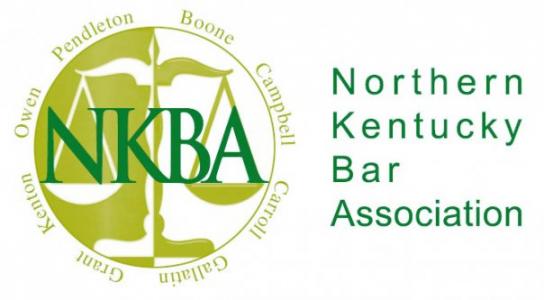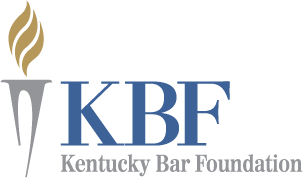Blog
Auto Accident Injuries: Part I
So, you have just been in an accident. What do you do now? First things first: don’t panic. This happens to many people every day. Auto accidents can be scary things, but if you handle everything step-by-step, you will be fine. This blog is part of a series on what happens in a car wreck that results in a personal injury claim.
Are You Injured?
Now, we already know you should not panic, even if you or a loved one are injured. Check everyone in your vehicle to determine whether they are injured or not. If anyone is injured, do not move them and do not take off your seatbelt. If you have a cell phone, call 911, the police, or whatever emergency service is available. Tell them there has been an accident and that someone is injured. Do not discuss how the accident occurred or who is at fault. That call is likely recorded. Some issues can develop later regarding any inconsistent statements in how the accident occurred if you accidently made a misstatement. Limit the discussion to what the emergency is: someone is injured; you need help; your location; there was an auto accident; and to send the police and an ambulance. If the police arrive, certainly explain the accident to them. Just refrain from doing that on the 911 call. Whatever you do, do not admit fault.
You should stay in the car until help arrives or until you determine it is safe to exit the vehicle. However, be careful. If you are on a highway or busy road, other vehicles may come along and be distracted by the accident scene or not see the accident at all. Many people have been injured or even killed when a vehicle strikes them after the accident has occurred. The safest place is usually your vehicle and still wearing your seatbelt.
You may check on the occupants of the other car to see if they are injured as well. However, do not talk about how the accident happened or who was at fault. Tell them help is on the way. If the other driver tries to point the finger at you as the at-fault-driver, do not let it upset you and do not respond to it. Just remember what he/she says. Again, whatever you do, do not admit fault.
The Accident Scene
Not every accident requires an ambulance or police officer to respond. Regardless if there is a responding officer or ambulance, you should do pretty much the same things. First, observe your surroundings, where the vehicles are located, skid marks, witnesses, and land marks. Sometimes, you have to move your vehicle to the side of the road, and this can disturb the accident scene.
Next, if at all possible, take photos of the scene, vehicles, landmarks, etc. before any vehicle is moved. Take photos of the damage to your vehicle, skid marks, and any interior damage as well. Take photos of the other vehicle. If there are any witnesses who stopped, take a photo of their license plate, and then get their name and contact information. If the police are there, then they will likely do this for you. You can still talk with the witnesses and ask what they saw. Try to take notes of what they say and if you can, get their phone number.
Make sure you get the name of the police officer and what police department she/he is with. You will need your accident report later on. Of course, if you are injured and being taken in an ambulance, you will not be able to do any of this. Do not worry though. If that is the case, the officer usually conducts a more thorough accident scene investigation.
If there is no officer responding, you must get the contact information and insurance information of the other driver. Ask to see their driver’s license and insurance policy, and you should do the same for them. Do not become angry if they do not have an insurance policy. I will address that in a later blog regarding uninsured/under insured motorists coverage (UM/UIM). Again, do not assess blame, and do not admit fault.
Above all else, make sure you and the occupants of your vehicle are being treated for injuries and are safe from further harm.
After The Accident
By now, you have either been transported in an ambulance, the officer has completed her/his investigation, or you have taken down the other driver’s information. Make sure you know where you vehicle is being taken if it is towed. If the vehicle is drivable, then go directly to your destination or home so that you can deal with the rest of the issues to come. The car may break down, and you do not want to be stranded.
If you have not been transported by an ambulance, you may still need to go to see a doctor. Many accident victims do not feel their injuries until later in the day or even the next day. Again, do not panic. Just because you went to see a doctor later does not mean you cannot make a claim against your insurance carrier or the other driver. However, if you feel you are injured, do not wait to go see a doctor. You have a duty to “mitigate” (i.e. alleviate, diminish, lessen) your injury/damages. So if you feel you are injured, go see a doctor as soon as possible.
My next recommendation would be to contact a lawyer as soon as possible. The issues will become complex and a lawyer can help you determine what the best options are. The hard stuff comes after the accident, where fault is being determined and what your injuries/damages are. I would recommend calling a lawyer before you speak with your insurance company or the other driver’s insurance company. Both will attempt to call you and take a recorded statement, and both will attempt to settle the case early.
If all of the above has already occurred and you have not talked with an attorney yet, it is not too late. Even if it is a year after the accident, an attorney may be able to help you.
My initial consultations are always free, and at the very least, I can point you in the right direction. Contact our firm and we can set up an appointment.
My next blog will discuss the lengthy process of dealing with the insurance companies and what information you need to collect next.
Benjamin T. D. Pugh is an associate with the firm, and because of his many names, goes by Tom Pugh. He focuses his practice on personal injury, criminal law, and insurance defense.







